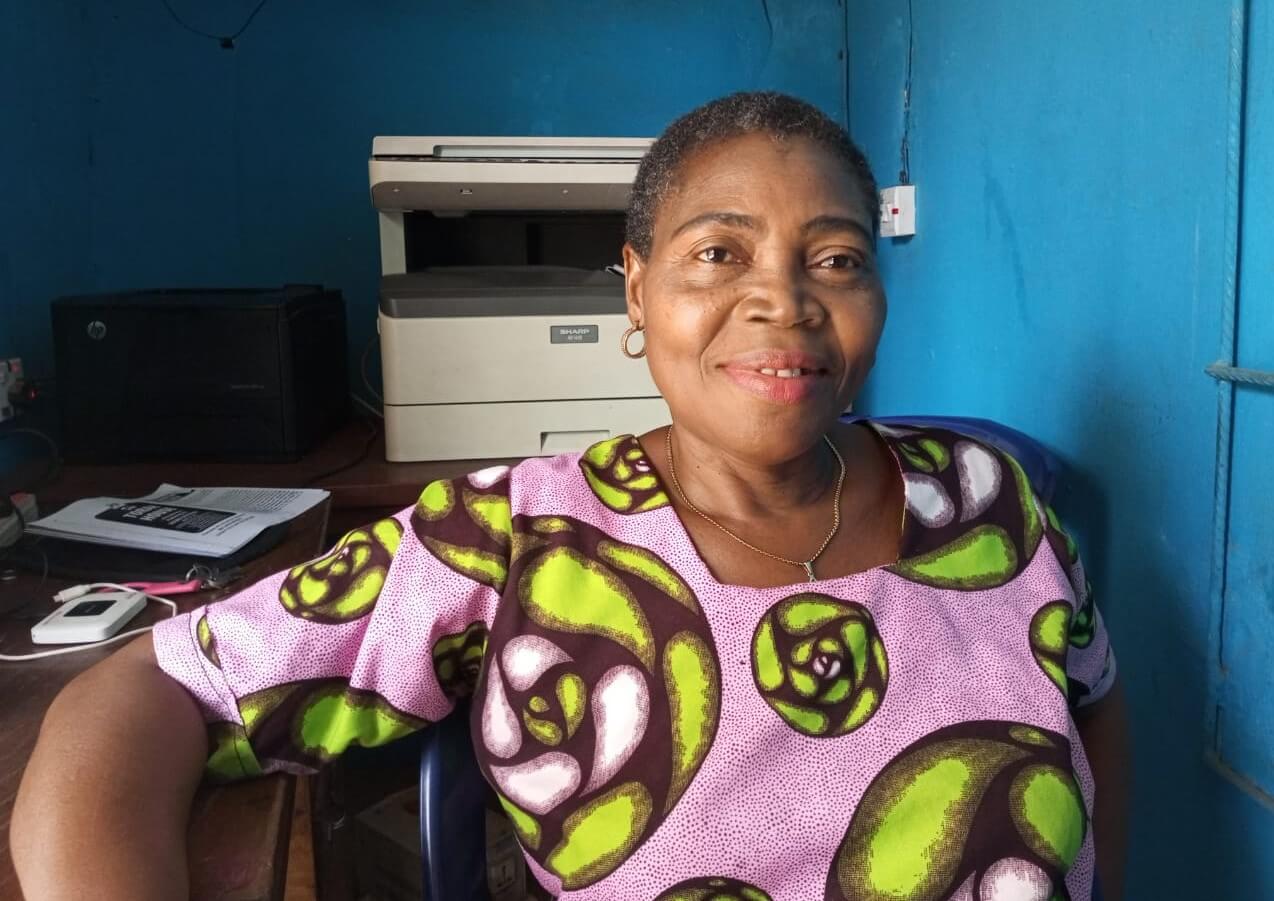Gloria Nwafor was born with her two legs working perfectly. She was a pleasure to her parents as she looked so beautiful as she grew.
However, at age three, the unexpected happened. Nwafor felt ill; her parents invited in a nurse who administered some medication to her, which later affected her two legs.
“That injection was administered to me when I had a minor illness, without knowing that I also had polio, and it paralyzed my two legs,” she said.
Later, while still confined to a wheelchair, Nwafor picked up other disabilities that made her life more difficult.
“I could not read without glasses. My left ear {went] deaf, while I hear partially with the right one. Lastly, I don’t perceive smell. Unless I see faeces, that is when I will know it is smelling,” she explained.
These conditions made it impossible for Nwafor to start school with her mates, and she only started when something that seemed like a temporary miracle happened.
“My parents wanted me to start using a walking aid. But, I insisted on using my legs, believing I would walk again. God answered my prayer, and I started walking. It was then that I started school,” she said.
Nwafor was overjoyed when she started school, but that joy soon died because her mother died not long after she began schooling. Until her death, her mother was the only person who believed in her and her education.
“She was my all. After her death, my father and elderly siblings decided I would not attend school. They said it was useless educating a girl with a disability who would not be useful,” she said.
But determined not to give up, “I completed my primary school education, sat for common entrance and had one of the best results,” she said.
Nwafor was used to social exclusion and isolation from friends and others outside her family. But facing rejection from her own family after her mother’s death was the most painful.
The position of her family concerning her education violated several local laws protecting the rights and interests of people with disability or PWDs, but the laws were not in force during her childhood period.
These laws include the Discrimination against Persons with Disabilities (Prohibition) Act of Nigeria 2019 and the Disability Rights Law 2018 of Anambra State, among others.
She dared to disagree
Although Gloria never knew she was entitled to the right to education even as a PWD, she was encouraged by her beautiful common entrance result and irresistible inner push for greatness to further her education at the secondary level.
“I went inside the room and cried profusely, asking God if it was true I would not be able to make it in life because I am physically challenged. I told myself that I would make it,” she said.
With this resolve, “I joined the women in the market, plaiting and weaving hair for people during the long vacation. So, I made so much money, which I used to pay my school fees and bought all the books I needed”.
But the struggle for survival and education had only just begun for bold Nwafor.
“I would go to the oil processing factory, separate the kernel from the chaff, and they paid me. I cracked palm kernel and fetched firewood for sale. Even, I carried concrete (mixed cement and sand) for the mason people in various construction sites,” she recounted nostalgically.
After secondary school, the local government administration noticed her and offered her a job at its social welfare unit.
“From there, due to my performance in handling family disputes as a single lady, the local government sponsored by education at the Federal School for Social Work, Emene, Enugu. There, I got my diploma in Social Work,” she explained.
“After that, the local government chairman gave scholarships to persons with disabilities from primary school to university. And I secured admission into Nnamdi Azikiwe University.”
Despite stigmatization and discrimination from her coursemates, Nwafor never gave up on her goal.
“People didn’t like associating with me. The only lady who accepted to be my friend, they were even dissociating themselves from her. It was painful to me as even the lecturers didn’t see one as a human being. But, I am happy today that I am a graduate,” she said.
Helping others
Today, Nwafor is a celebrity in her father’s house, where she was once rejected and written off. She is the only graduate in the family of five, a feat that gladdens her heart.
She now runs a nonprofit, the Care for the Physically Challenged and Destitute Foundation or CAPCADF, that caters to people with disabilities.
“Based on my bitter experiences, I established the NGO as a platform to educate and encourage fellow PWDs, especially the ladies, never to give up hope. They can rise above limitations and still become whatever God wants them to be, even without the help of anyone,” she said.
“They should learn from me and keep hope alive. I want them to see their inherent ability and harness such ability profitably.”
Registered in 2009 with the Corporate Affairs Commission (CAC), the organization has helped about 500 PWDs to cope better with their conditions through skills acquisition programmes, capacity building and empowerment.
“I once accessed a micro-credit which I disbursed to them after requisite training on managing the funds. Some learnt shoemaking, hairdressing, computer operation, and bead making. Some who did not have money for school fees, I helped them to foot the bill, including some who are not physically challenged.” Nwafor said
“Through the help of UNDP and Anambra State Government, we secured computers, printers and [power] generators for those who learnt computer [operation]. Those into pastries, we got ovens and cylinders for them. For those into tailoring, we gave all the equipment for tailoring, including electric machines.”
Nwafor wants to do more, but to do that, she asks “public-spirited individuals [to] key into my vision and help meet the financial need. Grants don’t come every time..”
But her nonprofit work has brought some pains as much as it has given her a sense of fulfilment.
“Despite my genuine efforts to positively affect their [PWD’s] lives, they normally accuse me of using them to make money when I don’t have anything. But, I am not discouraged because my intention is positive,” she said.
“Anyone can think whatever they want. If my conscience is clear, I won’t be discouraged because my account of stewardship will be rendered to God.”






